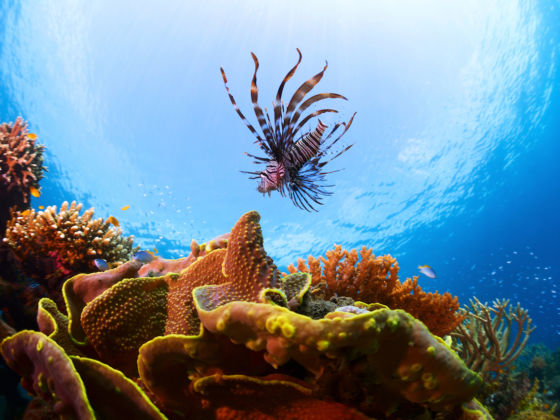That’s what the person on the other end of the line asked after the teacher passed her cell phone to me.
I was about to take 20 of her students snorkeling a mile or so offshore in La Parguera, Puerto Rico and her husband was calling to ask if I’d heard about the invasion of lionfish plaguing the area.
I hadn’t.
